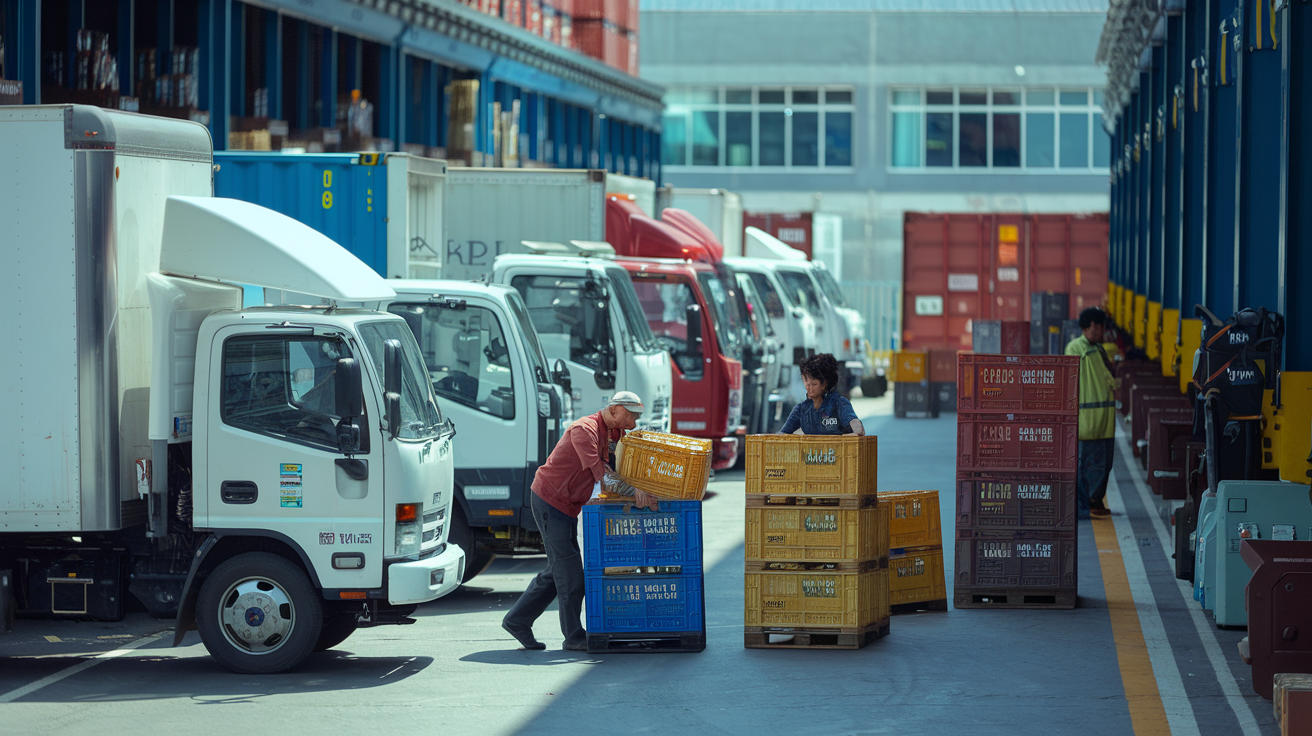In the ever-evolving world of logistics, cross-border transportation is emerging as a cornerstone of global supply chains, especially as we approach 2025. The importance of these connections was a focal point in a recent episode of Running on Ice, where host Mario Conell sat down with Mike Teresinski, Head of Managed Transportation and Cross-Border Services at TA. Teresinski shared his insights on the growing demand for tailored logistics solutions, the challenges of balancing customization with efficiency, and the critical role of collaboration in the industry’s future.
A Rising Star in Cross-Border Logistics
Having joined TA just a year ago, Teresinski brings a wealth of experience from previous roles at Uber Freight and Echo Global Logistics. He emphasized that cross-border operations between Mexico, Canada, and the United States are becoming increasingly essential for businesses navigating today’s complex supply chain landscape.
“Cross-border logistics is going to be a crucial piece of the supply chain puzzle,” Teresinski stated. He pointed out that more companies are moving away from transactional logistics and seeking deeper, partnership-driven relationships with their providers.
Tailoring Solutions for a Dynamic Industry
One of the biggest challenges in modern logistics lies in meeting the unique needs of each customer without sacrificing operational efficiency. Teresinski described TA’s approach to this balance as fostering sustainable partnerships. “We’re looking for folks who are less transactional and more relationship-oriented,” he explained.
This philosophy allows TA to deliver customized solutions that address specific requirements, whether it’s temperature-controlled freight or time-sensitive shipments. “Sometimes it’s not just about checking a box; it’s about creating a solution that fits the customer’s unique needs,” Teresinski added.
The Power of Transparency and Communication
Effective logistics hinges on clear communication and realistic expectations. Teresinski underscored the importance of transparency between shippers and logistics providers. In a lighthearted moment, he quipped, “If you’re opening a new distribution center, please give your logistics provider more than a day’s notice.”
While humorous, his remark highlighted a critical issue: proactive communication can dramatically enhance service reliability and operational success.
Navigating the Complexities of Cold Chain Logistics
Temperature-controlled freight presents a unique set of challenges. Unlike dry goods, where minor delays might be acceptable, temperature-sensitive shipments require unwavering compliance with strict standards.
“Deviations can lead to significant issues,” Teresinski said, stressing the importance of vigilant oversight. He explained that TA leverages advanced monitoring systems and compliance protocols to ensure the integrity of these shipments from origin to destination.
Mastering Customs and Regulatory Nuances
Cross-border logistics also demands a thorough understanding of customs regulations, which can vary significantly between countries. To address this, TA employs bilingual staff with expertise in cross-border operations.
“Our teams are equipped to handle the intricacies of customs compliance,” Teresinski noted. This approach not only ensures regulatory adherence but also strengthens trust with shippers and carriers alike.
Looking Ahead: Seasonal Demand and Innovation
As the logistics industry evolves, Teresinski anticipates a resurgence in seasonal demand patterns that have been subdued in recent years. He attributes this shift to changes in consumer behavior and broader market dynamics.
By harnessing localized expertise and cutting-edge technology, TA is well-positioned to adapt to these trends. The company is committed to leveraging data-driven insights to anticipate demand, optimize routes, and enhance the overall customer experience.
A Collaborative Future for Logistics
As we move toward 2025, the logistics industry faces a pivotal moment. Collaboration, innovation, and a focus on building lasting partnerships will be key to navigating the challenges and opportunities ahead.
TA, under the leadership of forward-thinking professionals like Mike Teresinski, is at the forefront of this transformation. By delivering tailored solutions and embracing a partnership-driven approach, the company is paving the way for a more connected and efficient supply chain ecosystem.
For businesses relying on cross-border logistics, the message is clear: the future is about more than just moving goods—it’s about creating value through collaboration and innovation.

